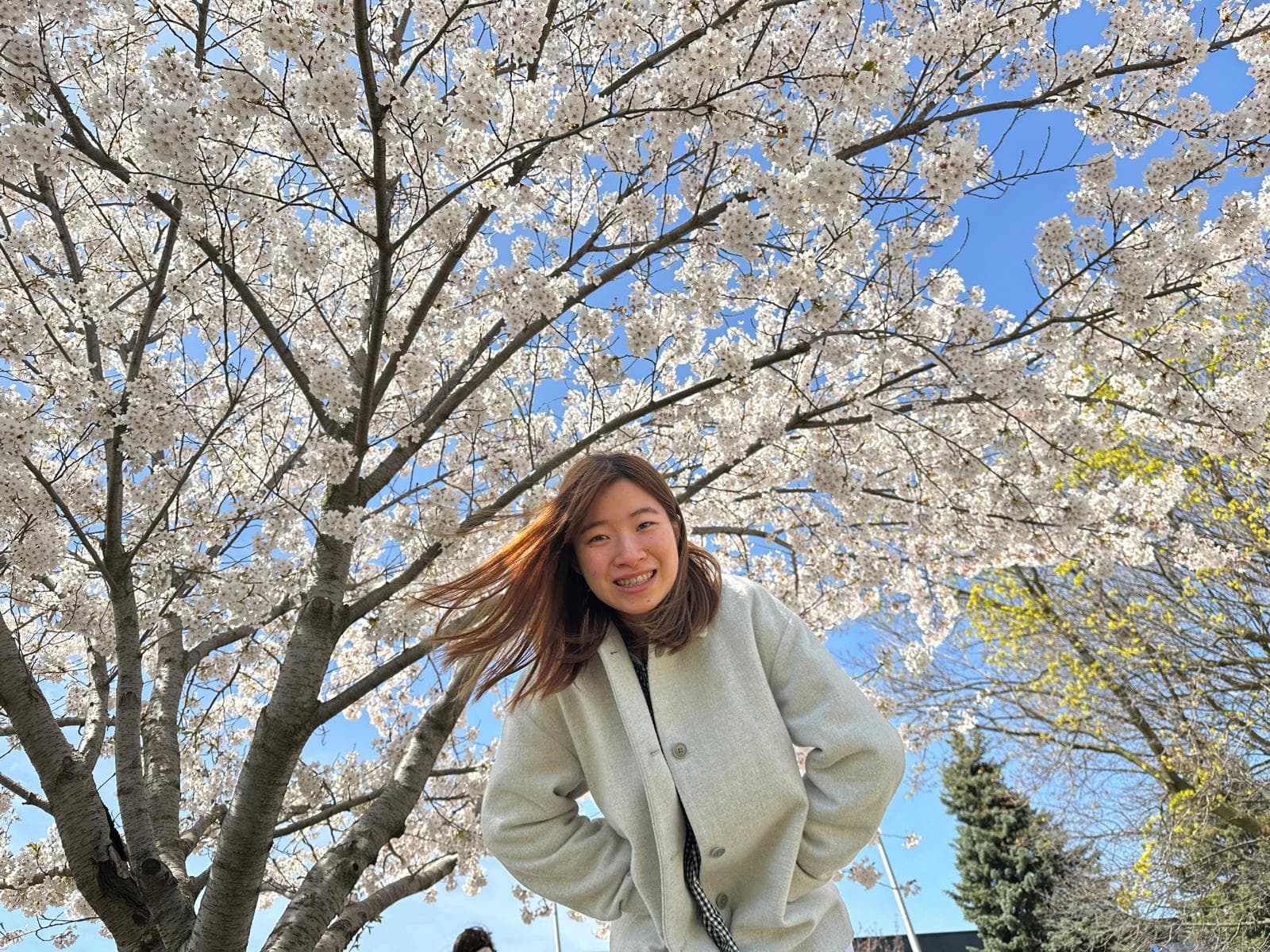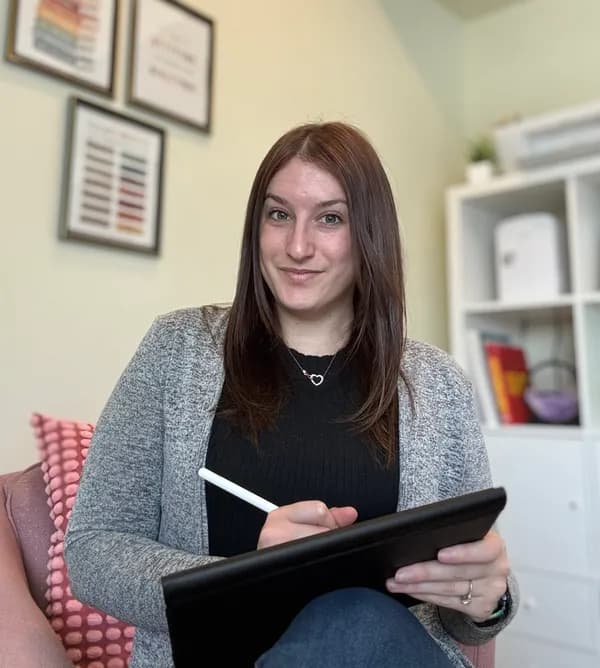Therapy for relational trauma

You might choose people who hurt you or push others away when they get close. Trust feels dangerous because the ones who were supposed to protect you caused harm. These patterns began in childhood when you adapted to unsafe or inconsistent caregivers. This is relational trauma, and it is learned, not a personal flaw. With support, these patterns can heal.
Understanding relational trauma
What is relational trauma?
Relational trauma happens when the people you depended on for safety became sources of fear or hurt. It often begins in childhood when caregivers are inconsistent or unavailable, creating confusion about closeness and safety. When the person you turn to for comfort is also the person who frightens you, your nervous system cannot resolve the conflict, shaping how you trust and connect for years to come. This early attachment disruption becomes the lens through which you experience relationships.
Types of relational trauma
Relational trauma can involve physical or sexual abuse, emotional abuse, neglect, or enmeshment. Each form affects how you view yourself and others. Emotional neglect teaches you that your feelings do not matter, while emotional abuse creates lasting shame. Physical or sexual abuse distorts your sense of safety and boundaries. Enmeshment happens when caregivers rely on you to meet their emotional needs, leaving little room for your own identity. These patterns shape how you relate to others long after childhood.
Relational trauma in Canada
Sources: Statistics Canada (Intimate Partner Violence Report) and Public Health Agency of Canada. Relational trauma is distinct because it breaks the "safety connection" with others, often leading to chronic issues with trust and emotional regulation.
How relational trauma manifests in adulthood
Relational trauma shapes how you connect with others long after childhood. Early attachment wounds become automatic patterns that influence trust, closeness, and emotional safety in adult relationships.
Anxious attachment and fear of abandonment
When caregiving was inconsistent, you may crave closeness yet fear losing it. Reassurance never feels enough, and relationships feel uncertain because your nervous system learned that love can disappear without warning.
Avoidant attachment and fear of intimacy
If caregivers dismissed your needs, relying on others now feels unsafe. You value independence, pull back when emotions rise, and keep distance to avoid the pain of disappointment, even when you want connection.
Disorganized attachment and push pull patterns
When a caregiver was both comforting and frightening, you may seek closeness then retreat suddenly. This creates intense, confusing relationship cycles driven by a nervous system that learned connection and danger at the same time.
Repeating familiar patterns
Relational trauma often leads to choosing familiar dynamics even when they are harmful. Your nervous system gravitates toward what it recognizes, making repetition feel safer than unfamiliar healthy relationships.
Difficulty with boundaries
Childhood boundary violations can lead to people pleasing, saying yes when you want to say no, or keeping walls so high that no one can get close. Without early modeling, healthy boundaries feel unfamiliar and hard to maintain.
Shame and distorted self perception
When caregivers mistreated or ignored you, you may have internalized beliefs that you were the problem. This early shame can persist into adulthood, shaping self doubt, perfectionism, and difficulty accepting love or success.
Difficulty trusting and fear of vulnerability
Being hurt by people who should have protected you makes trust feel risky. You may share little of your inner world or expect betrayal, yet still long for closeness. Vulnerability feels unsafe even when relationships require it.
Emotional regulation difficulties
Without caregivers who helped you manage big feelings, emotional regulation becomes hard as an adult. You may feel overwhelmed, shut down, or swing between extremes because you never learned consistent co regulation in childhood.
How therapy heals relational trauma
Here's the paradox: relational trauma happens in relationships, and healing must also happen in relationships. The therapeutic relationship itself becomes a corrective emotional experience, providing the consistent, attuned presence your earlier relationships lacked. Your therapist models what healthy attachment looks like—reliable, boundaried, accepting of your full self. Over time, experiencing this different type of relationship begins rewiring your attachment patterns.
Evidence-based treatments for relational trauma
Emotionally Focused Therapy (EFT)
EFT helps you understand attachment wounds and create new patterns of connection. You learn to identify the emotions driving relationship struggles, express needs clearly, and respond to others in ways that build security. For couples, EFT strengthens responsiveness and trust, allowing partners to repair old injuries and form healthier emotional bonds.
Internal Family Systems (IFS)
IFS helps you explore the protective parts that developed to survive relational trauma. You learn to connect with these parts with curiosity rather than judgment, strengthening a calm inner Self that can support wounded younger parts. This internal reparenting process creates deep emotional change and reduces the intensity of old patterns.
EMDR for attachment trauma
EMDR reprocesses painful attachment memories and decreases their emotional charge. By working through experiences of rejection, abandonment, or emotional harm, you develop more adaptive beliefs about yourself and relationships. This approach also helps your nervous system better regulate during moments of emotional stress.
Attachment-based therapy and limited reparenting
Attachment-based therapy uses the therapeutic relationship as the core healing experience. Your therapist provides consistent attunement, emotional safety, and healthy boundaries, allowing you to internalize a new sense of security. Over time, you learn that relationships can be safe, your needs matter, and connection does not require self abandonment.
Somatic and body-based approaches
Somatic therapies focus on how relational trauma shows up in the body, helping you notice sensations, reduce chronic tension, and regain a sense of safety in your physical self. Techniques like grounding, movement, and breathwork support nervous system regulation and help reconnect you with emotions that were once too overwhelming to feel.
Trauma-focused Cognitive Behavioral Therapy (TF CBT)
TF CBT helps you identify beliefs shaped by relational trauma and replace them with more balanced perspectives. You learn skills for managing emotions, tolerating distress, and building healthier relational habits. This approach is effective on its own and integrates well with therapies that address deeper attachment and somatic wounds.
The journey of healing from relational trauma
Building safety and understanding your patterns
Early work focuses on creating a sense of safety, learning how your attachment patterns developed, and understanding how they show up today. You begin recognizing when anxious or avoidant reactions surface and learn regulation skills to manage overwhelming emotions. This grounding phase helps you gain control over responses that once felt automatic.
Processing attachment wounds and traumatic experiences
You gradually work through painful relational experiences with therapeutic support, allowing emotions and beliefs shaped by past harm to be processed rather than avoided. Grief naturally emerges in this phase as you acknowledge losses from childhood and relationships, and your therapist helps you move through these feelings at a manageable pace.
Challenging core beliefs and building secure internal attachment
You identify deep beliefs formed through relational trauma and begin replacing them with more compassionate and realistic ones. At the same time, you learn to provide yourself with reassurance, comfort, and protection through self-reparenting so you become a stable internal source of safety that supports healthier relationships.
Practicing new relational patterns
You apply insight through real practice, trying new ways of communicating, setting boundaries, or staying present during vulnerability. Therapy becomes a safe place to experiment, reflect, and adjust, and over time you replace old survival patterns with more secure and connected ways of relating.
Integration and moving toward secure attachment
As healing integrates, you respond more consciously in relationships, recognize old patterns without being ruled by them, and rely on your capacity for self-soothing, repair, and healthy connection. Secure attachment becomes a lived experience rather than an abstract idea, and you approach relationships with more confidence, resilience, and self-worth.
Find a therapist specializing in relational trauma
Choosing the right therapist matters. Each province in Canada has its own regulations, which is why working with a recognized professional can make a real difference in your care. Stellocare takes the uncertainty out of the process by listing only verified therapists you can trust.
The right therapist for you
No therapists found with these specialties in Ontario.
Try selecting a different province.Practices and resources for healing relational trauma
Canadian relational trauma services
Specialized Public Programs (OHIP/MSP)
Women's College Hospital - Trauma Therapy Program (Toronto/Ontario)
This is widely considered the leading public program for relational trauma. They offer the "Women Recovering from Abuse Program (WRAP)" and mixed-gender groups that focus specifically on "Interpersonal" trauma—healing the ability to trust and relate to others after childhood or adult abuse.
Community Agencies (Non-Profit)
Moving Forward Family Services (National/BC)
A registered non-profit offering "low-barrier" counseling. They have a mandate to serve those with "Family Conflict" and relationship issues who cannot afford private therapy. They offer supervised counseling focused on breaking cycles of relational stress.
Relationship Repair & Safety
YWCA - "Choices for Living" (Toronto)
A free community group for women and gender-diverse people. Unlike a crisis shelter, this program is for the "aftermath"—learning assertiveness, boundary setting, and how to have healthy relationships after experiencing coercive control.
Family Service Agencies (National Network)
Agencies like Family Service Toronto or Family Service Regina are the primary community hubs for "Relational Counselling." They offer sliding-scale therapy specifically for couples and families to address betrayal, conflict, and attachment injuries.
Self-help practices between sessions
Understanding your attachment patterns
- Track patterns: Notice when you feel anxious, when you withdraw, and what triggers these reactions. Awareness helps you understand your automatic responses.
- Identify core wounds: Write down beliefs formed in childhood such as feeling unworthy or unsafe in relationships. Naming them helps you question them.
- Notice nervous system states: Pay attention to when you feel activated, shut down, or calm. These states often reflect old attachment strategies.
- Reflect on early relationships: Consider how caregivers responded to you and what you learned about trust, safety, and worthiness.
Building secure internal attachment
- Practice self-reparenting: Offer yourself comfort and reassurance in moments of distress, as a caring caregiver would.
- Use self-soothing tools: Try grounding, gentle movement, or sensory cues to help regulate intense emotions.
- Challenge critical voices: Replace harsh inner talk with compassionate responses that support growth.
- Strengthen self-trust: Keep small commitments to yourself to build a sense of reliability and safety within.
Practicing healthier relationship patterns
- Pause before reacting: When activated, take a moment to ground and ask if the reaction belongs to the present or to the past.
- Introduce vulnerability slowly: Share small truths or tolerate small amounts of space based on your attachment type.
- Express needs clearly: Communicate what helps you feel connected or what space you require for regulation.
- Repair after conflict: Initiate reconnection, offer apologies when needed, and practice returning to safety together.
Working with specific attachment styles
- Anxious attachment: Practice calming skills, create predictable connection rituals, and build interests outside the relationship.
- Avoidant attachment: Stay present with emotions, take small emotional risks, and gently challenge fears of closeness.
- Disorganized attachment: Name conflicting urges for closeness and distance, allowing both experiences to exist without pressure.
- Move toward secure attachment: Seek relationships where you feel understood, supported, and emotionally safe.
Common questions about relational trauma therapy
Can attachment styles really change?
Yes. Attachment patterns can shift with therapy and secure relationships. You may still feel old reactions at times, but you learn to recognize them and respond differently. With practice, your brain forms new pathways that support more secure relating.
How do I know if my relationship problems are from relational trauma?
Patterns that repeat across relationships often point to relational trauma. This includes choosing unavailable partners, fearing abandonment, avoiding closeness, or reacting intensely to minor issues. A therapist trained in attachment can help you understand these patterns.
Will I have to confront my parents or family about past trauma?
No. Healing does not require confronting anyone who caused harm. Therapy focuses on your emotions, beliefs, and attachment patterns. You can heal fully even if your family never acknowledges what happened.
Can I heal relational trauma while staying in my current relationship?
Healing is possible if the relationship is safe and both partners are willing to grow. If the relationship is abusive or deeply unstable, healing is much harder. A therapist can help you assess whether your relationship supports recovery.
What if I'm attracted to people who recreate my trauma?
This is common. Your nervous system is drawn to familiar patterns, even when they are harmful. Therapy helps you understand these attractions and gradually build capacity for healthier relationships that may feel unfamiliar at first.
How do I find a therapist who understands relational trauma?
Look for someone trained in attachment theory and relational trauma approaches such as EFT, IFS, EMDR for attachment, or somatic therapies. Ask about their experience with developmental and attachment wounds.
Is it too late to heal if I'm already an adult?
It is never too late. Adults of any age can develop more secure attachment. Your brain can change throughout life, and you now have the insight and agency that were not available in childhood.
What if therapy itself triggers my attachment wounds?
This is normal. Therapy often activates old attachment fears, and a skilled therapist helps you work through them safely. These moments can become powerful opportunities for healing and learning new relational patterns.
Related concerns
References
- Schwartz, A. (2024). Complex PTSD and Attachment Trauma. Dr. Arielle Schwartz. Retrieved from https://drarielleschwartz.com/complex-ptsd-and-attachment-trauma-dr-arielle-schwartz/
- Attachment Project. (2025). Attachment Wound: How to Heal Attachment Wounds. Retrieved from https://www.attachmentproject.com/psychology/attachment-wound/
- Attachment Project. (2025). Attachment Trauma: What is it? Retrieved from https://www.attachmentproject.com/psychology/attachment-trauma/
- Strathearn, L. (2019). Psychobiology of Attachment and Trauma. Frontiers in Psychiatry. Retrieved from https://pmc.ncbi.nlm.nih.gov/articles/PMC6920243/
- Balanced Awakening. (2025). Understanding and Healing from Relational Trauma. Retrieved from https://balancedawakening.com/blog/understanding-amp-healing-from-relational-trauma
- Living Open Hearted. (2024). What is Relational Trauma and 10 Strategies To Start Healing. Retrieved from https://www.livingopenhearted.com/post/relational-trauma
- BrightQuest Treatment Centers. (2022). Relational Trauma. Retrieved from https://www.brightquest.com/relational-trauma/
- Cleveland Clinic. (2022). The Attachment Styles and How They're Formed. Retrieved from https://health.clevelandclinic.org/attachment-theory-and-attachment-styles
- Attachment Project. (2025). Disorganized Attachment Style: Everything You Need to Know. Retrieved from https://www.attachmentproject.com/blog/disorganized-attachment/
- Remedy Psychiatry. (2023). Avoidant and Disorganized Attachment Styles. Retrieved from https://remedypsychiatry.com/avoidant-and-disorganized-attachment-styles/
About Stellocare
Stellocare is a Canadian platform where you can find the best fit therapist for you. Search the right thperaists now by asking our AI, browsing our list, or finding our social workers for personal referral.

Rex Cheung
Registered Social Worker (ON)

Kat Sevsek
Registered Psychotherapist (Qualifying) (ON)

Sze Nga Cecilia Au Yeung
Registered Social Worker (ON)

Jonathon Zarb
Registered Psychotherapist (ON)

Patricia Dekowny
Registered Social Worker (AB)

Victoria Jacobs
Registered Psychotherapist (ON)

Katherine Collins
Registered Psychotherapist (Qualifying) (ON)

Yamila Luner
Canadian Certified Counsellor

Melissa Recine
Registered Psychotherapist (ON)

Chanté Merriman
Registered Psychotherapist (Qualifying) (ON)

Supriya Verma
Registered Psychotherapist (Qualifying) (ON)

Kellie Thomas
Registered Psychotherapist (ON)

Stefania Bonanno
Registered Social Worker (ON)

Ashley Neveu
Registered Psychotherapist (ON)

Andrea Laurie
Canadian Certified Counsellor

Stacy Kirkbride
Registered Psychotherapist (ON)

Daniella Sanchez
Registered Social Worker (ON)

Jeromy Deleff
Canadian Certified Counsellor

Robyn Floyd
Registered Psychotherapist (ON)

Jennica Campbell
Registered Therapeutic Counsellor (BC)

Rex Cheung
Registered Social Worker (ON)

Kat Sevsek
Registered Psychotherapist (Qualifying) (ON)

Sze Nga Cecilia Au Yeung
Registered Social Worker (ON)

Jonathon Zarb
Registered Psychotherapist (ON)

Patricia Dekowny
Registered Social Worker (AB)

Victoria Jacobs
Registered Psychotherapist (ON)

Katherine Collins
Registered Psychotherapist (Qualifying) (ON)

Yamila Luner
Canadian Certified Counsellor

Melissa Recine
Registered Psychotherapist (ON)

Chanté Merriman
Registered Psychotherapist (Qualifying) (ON)

Supriya Verma
Registered Psychotherapist (Qualifying) (ON)

Kellie Thomas
Registered Psychotherapist (ON)

Stefania Bonanno
Registered Social Worker (ON)

Ashley Neveu
Registered Psychotherapist (ON)

Andrea Laurie
Canadian Certified Counsellor

Stacy Kirkbride
Registered Psychotherapist (ON)

Daniella Sanchez
Registered Social Worker (ON)

Jeromy Deleff
Canadian Certified Counsellor

Robyn Floyd
Registered Psychotherapist (ON)

Jennica Campbell
Registered Therapeutic Counsellor (BC)

